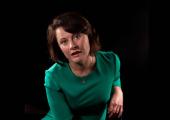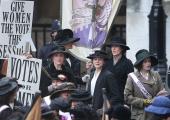CD: Lily Allen - No Shame

Broken marriage vividly dissected under the microscope on the singer's fourth album
Lily Allen has long been an unlikely inhabitant of the tabloid sphere. She was born into it and her pop career sealed the deal, rendering her a recalcitrant victim of paparazzi fishbowl idiocy, ugly magazines and online sidebars. She is, however, one of the few to undermine this process, offering gritty, poetic response in song. “The Fear”, for instance, was a huge hit that also 100 percent nailed vapid celeb aspiration. Her fourth album is, at its best, her rawest and most revealing.
Allen’s last outing, 2014’s Sheezus, saw her less focused. Lyrically sharp as ever, it was hampered by lesser music and a sense that the singer was drifting along uncharted. On the aptly titled No Shame – or at least its first two thirds - she is on piercing form, excoriating herself, going through the psychological mangler over her collapsed marriage, which she places firmly at her own door. At times it recalls Beyoncé's approach on Lemonade.
“I’m a bad mother/I’m a bad wife/You saw it on the socials/You saw it online,” runs a line in opener “Come On Then” over spaced out drum & bass. And there follow songs about loss, guilt, jealousy, selfishness, and crushing loneliness. The calypso-tinted “Lost My Mind”, for instance, juxtaposes an upbeat tropical house feel with forlorn feelings of abandonment, while “Family Man” is a gigantic, piano-led, Elton-goes-trip-hop ballad, desolate but ever clear-eyed (“I don’t like most people but I’m scared not evil”), and “Apples” mourns that she may be doomed to repeat the relationship mistakes of her parents.
These and others are the songs that make the album. Eventually things cheer up and, unfortunately, slacken off. Her co-songwriter throughout the album’s initial conception was Fryers’ Ben Garrett, who gives it a contemporary pop sheen dipped in woozy downtempo electronica. The last few numbers simply don’t have the same impact, although “Pushing Up the Daisies” has a certain cute charm. The creation of No Shame involved many, from producer Mark Ronson to Vampire Weekend's Ezra Koenig to various guest vocalists, but it’s Lily Allen’s sweet, vulnerable voice that owns the record, alongside her finely tuned, wounded, and ruthless way with a scalpel-sharp pop couplet.
Courtney Barnett, Albert Hall, Manchester review - mesmerising indie-rock set

Slacker-rock queen is anything but slack in blistering performance
Although once famous for her Australian drawl and hazy jams, on her most recent album Tell Me How You Really Feel, Courtney Barnett has transformed herself into an all-singing indie star, resulting in something more assured, vulnerable, and intense than her previous work. Touring the UK with her band of Bones Sloan, Dave Mudie and Katie Harkin, her 19-song set in Albert Hall in Manchester is faultless.
Meg Wolitzer: The Female Persuasion review - the many faces of feminism

Novel about sisterhood, mentorship and finding an outside voice
Meg Wolitzer’s 10th novel has been hailed as a breakthrough, a feminist blockbuster, an embodiment of the zeitgeist. (Nicole Kidman has bought the film rights, which goes to show.) But in all her fiction, she deftly explores motherhood, career, misogyny, feminism, the domestic detail within the bigger picture, with a very American, affectionate wit – she’s particularly good at awkward teenagers – though sometimes there’s a feeling of skill at the expense of substance.
DVD: Here to Be Heard - The Story of the Slits

Well-told documentary on Britain's groundbreaking female punk band
Here to be Heard, made by US film-maker and punk rocker William E Badgley, has such a juicy, pertinent story to tell that it never palls. Over 84 minutes, contemporary interviews and old footage build a two act drama that reveals The Slits to be one of the most underrated bands of their era.
Sophie Mackintosh: The Water Cure review - on the discipline of survival

Dystopian debut novel carves lyric from brutality
A body can be pushed to the brink, to the point where thoughts flatten to a line of light, and come back from death, but the heart is complex and the damage it wreaks barely controllable. For Grace, Lia and Sky, the three sisters of Sophie Mackintosh’s debut novel The Water Cure, living by a discipline which tames their bodies and emotions to strict rituals is more than a matter of self-control – it is a matter of survival.
Female Parts: Shorts, Hoxton Hall review - women speak out

Adulteress, mother and immigrant tell their stories in three monologues
Hot on the heels of International Women’s Day come three monologues written, directed and produced by women showing at Hoxton Hall. It’s kind of a treat, and kind of not.
Ursula K Le Guin - Dreams Must Explain Themselves review - enraging and enlightening

A final instalment of irresistible wisdom from a great commentator on our world
Essay collections are happily mainstream now, from Zadie Smith to Oliver Sacks, with more and more bits and bobs coming from unexpected quarters. These patchwork quilts from remarkable writers can be significant, nowhere more so than with those from Ursula K Le Guin that are collected here as her “Selected Non-Fiction”.
The B*easts, Bush Theatre review - Monica Dolan is almost flawless

Hectic monologue from smoking, drinking, fast-talking psychotherapist about women's bodies
Lila had breast implants at the age of eight. Karen, her mother, is required to take psychotherapy sessions on account of the fact that she arranged for the operation. Tessa (played by Monica Dolan, pictured top and below) is a psychotherapist who is treating Karen.
Collective Rage, Southwark Playhouse review - a rollicking riot

Absurd romp through love, lust, and friendship is a knock-out
“Pussy is pussy” and “bitches are bitches” but Jen Silverman’s Collective Rage at Southwark Playhouse smashes tautologies with roguish comedy in a tight five-hander smartly directed by Charlie Parham.
Listed: Suffragettes portrayed

From theartsdesk archive: How have the pioneering days of women's emancipation fared in works of art?
It was both astonishing and depressingly unsurprising that Suffragette, Sarah Gavron’s feature about the insurgent foot soldiers of the campaign for women’s suffrage, was the first fictionalised film specifically about the movement. There are more films about the miners’ strike – which clearly tells us something.
